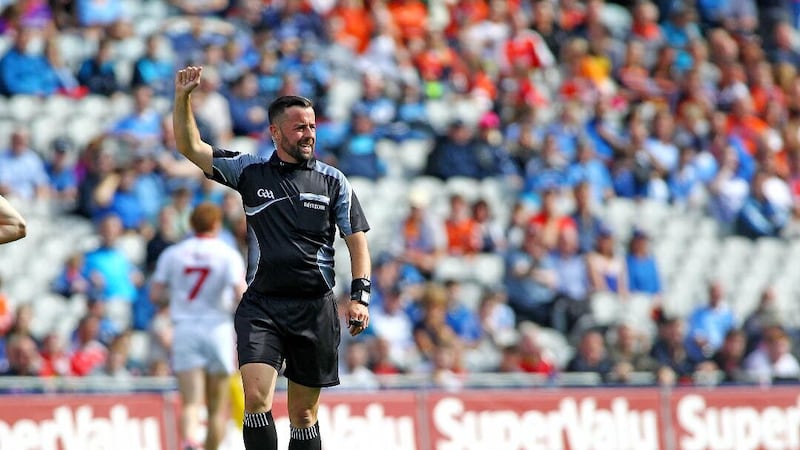Over the last few months it has been noticeable that a new word has entered into the vocabulary of political unionism, and that word is reconciliation. While by no means a new word to the English language it is a word not normally associated with unionism in the six counties.
One hundred years ago the island of Ireland was partitioned against the wishes of the majority of the people democratically expressed in the 1918 election. At this time reconciliation was not on the unionist agenda. Instead, based on a purely sectarian headcount, the six counties was separated from the rest of Ireland with no thought of reconciliation with the nationalists who found themselves trapped in this unwelcoming Protestant statelet.
Indeed, rather than any attempt being made at reconciling the Catholic population with this statelet, unionism used several oppressive measures to keep the Catholic members repressed and subjugated.
The lack of any attempts at reconciliation by the unionist in-built majority has continued for the last 100 years. Peaceful attempts by the nationalist Civil Rights Association at reconciliation in the late 1960s and early 1970s was met with unionist intransigence and sheer sectarian brutality.
In the late 1990s further attempts at forming a system of government that could reconcile the two sides was only reluctantly engaged in by one section of political unionism while another (DUP) opposed any attempts at reconciliation with the nationalist community. The Good Friday Agreement (GFA) has never fully succeeded, largely due to continued unionist intransigence and political unionism’s determination to maintain the status quo and keep unionism dominant.
Now changes are underway and unionism is facing a future where it will no longer be the dominant political entity and appears it has nowhere to go. Faced with this inevitable fact and the undisputed demographic changes that is producing a Catholic majority in the six counties, the term ‘reconciliation’ is now being used by all unionist party leaders and unionist politicians in general.
Alas, while unionist politicians are preaching this policy they are not practising it in real terms. As all the recent opinion polls have clearly indicated nationalism will be the largest political entity after the assembly elections next year. Unionist response to this shows clearly that it still cannot accept nationalism as an equal partner and still longs for unionist dominance.
Sir Jeffrey Donaldson and Doug Beattie, leaders of the two main unionist parties, cannot even say they would serve in a government with a Sinn Féin first minister.
So, while unionists are now calling for reconciliation, they only want it if they remain the dominant party.
SEAN SEELEY
Craigavon, Co Armagh
Elitism has created intolerance between faiths
There is a generally accepted maxim that the rules of all intellectual activity spin down to one precept – the testing of assertion on the anvils of logic and verifiable fact. In other words, for an argument to be established it must make sense, rationally and empirically.
People of strong religious faith often set aside these rules to believe, inter alia, that we were created, fully formed, 6,000 years ago.
Consider the consequences if the accumulated reasoning of the best professional advice, which determines our laws, was substituted by religious tenets lacking evidential support.
The first question which springs to mind is, ‘Which religion?’. If it’s Christianity, what branch of Christianity? Is it Catholicism, Free Presbyterianism or Methodism? If it’s Islam, is it Shia or Sunni? Or is it Judaism or Hinduism? All religions claim they are the one true religion, the only one chosen by God. This elitism has created an intolerance between faiths, which has resulted in bloody conflicts throughout history, from the Crusades, post-Reformation wars, to the present day problems in the Middle East, Afghanistan etc.
Then we come to issues like abortion. Here is a synopsis of the stance taken by a few of the world’s religions: abortion not allowed, includes Catholicism and Hinduism: abortion allowed with some restrictions, includes Episcopal Church and United Methodist: abortion allowed with few or no restrictions, includes Conservative Judaism and Reform Judaism: religions with no clear position, includes Islam and Buddhism.
Other influential religions, like Jehovah’s Witnesses, have obscure dictates, such as the ban on blood transfusions, even if death is the possible outcome, and even if a child is the patient. Thankfully, with children, the law rejects the parents right to withhold medical intervention. That would not be the case if Jehovah’s Witnesses determined a country’s laws. Paradoxically, Jehovah’s Witnesses reject abortion. It is not possible to notate here the hundreds of religions and their dissonant prejudices. It is however clear that a rational society is not possible if the rules of intellectual activity were abnegated in favour of laws concocted via differing interpretations of some holy book, by opposing sects.
DANNY TREACY
Ballyclare, Co Antrim
Sinn Fein’s new-found support for non-jury courts
Like them or hate them, it has to be admitted that Mary Lou’s party is consistent when it comes to civil liberties and civil rights.
Her decision in favour of non-jury courts is in line with her current party’s role, (very soon after their foundation in the early 1970s), when they then viciously opposed the Northern Ireland Civil Rights Association’s demands for a reformed Stormont, coupled with a Bill of Rights.
Their new found support for non-jury courts – which is just a step away from internment without trial – could easily have been avoided by advocating for gangland (and the few republican and fewer still loyalist) trials be moved, at random, around the country and for the practice of providing lists of jurors’ names, addresses and occupations to both the prosecution and defence be substituted with lists of jurors using numbers and only their occupations. That should satisfy the constitutional right to trial by one’s peers.
But, of course, that might not be sufficient to satisfy the party’s suitors who have implemented the Offences Against the State Act since 1939.
BREASAL Ó CAOLLAÍ
Dun Laoghaire, Co Dublin
Tackling coastal rubbish
Newry Mourne and Down Council is to replace 79 litter bins, stretching from Strangford to Rostrevor, with bird-proof bins.
This was after a survey had been undertaken to find potential locations. Sites were identified by staff members and concerns from the public.
It is very disappointing that Warrenpoint was not on this list as it would have addressed some of the litter problems. It has the potential to help prevent marine litter pollution. Surely this survey can be reassessed and the litter bins installed in Warrenpoint by March 2022.
We need to value our areas of outstanding natural beauty while also protecting Carlingford and Strangford Loughs’ status as important Areas of Special Scientific Interest.
JAMES BOYLAN
Warrenpoint, Co Down







